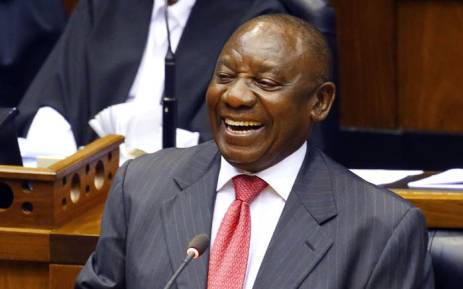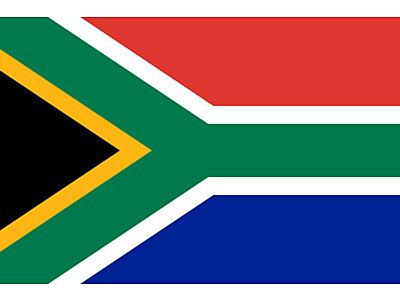The 65-year-old Soweto born politician, lawyer, trade unionist and businessman was sworn in to the highest office on Thursday.
South Africa's new president Cyril Ramaphosa smiles as he delivers a speech after being elected by the Members of Parliament during his swearing in ceremony at the Parliament in Cape Town, on 15 February 2018. Picture: AFP
A game farmer and the tenth richest man in South Africa, that is our President Cyril Ramaphosa.
The 65-year-old Soweto born politician, lawyer, trade unionist and businessman was sworn into the highest office on Thursday.
It's said that Cyril Ramaphosa picked up his nickname, "the Buffalo", after bidding close to R20 million on a buffalo.
Last year, the game farmer sold an Ankole bull for R640,000.
The president is a successful businessman and has served on the boards of MTN, Lonmin, South African Breweries, First Rand Limited, Macsteel Holdings, Alexander Forbes and Medscheme Limited.
The 2017 Hurun Global Rich List for South Africa put Ramaphosa in 10th place.
The Buffalo's rise to the presidency effectively started with his return to politics in 2012, however, its roots are perhaps in the 1970s when he was detained for 11 months as a student activist against apartheid.
http://ewn.co.za/2018/02/16/who-is-cyril-ramaphosa-sa-s-new-president
View Full Post and Comments
Human Rights Day (21 March) was officially declared a public holiday in 1994 following the inauguration of former president Nelson Mandela. This national day-off is both a stark reminder of the tragic Sharpeville massacre and a celebration of South Africa’s unique constitution, which gives equal rights to all.
THE SHARPEVILLE MASSACRE
On Monday, 21 March 1960, police opened fire, without order, on a crowd that had gathered at the Sharpeville station to protest pass laws, stipulations that required Africans to carry pass books (Dompas) and produce them to law enforcement officials on request; 69 unarmed people were killed and another 180 were injured.
While little is known about what really sparked this tragic event, Joe Tlholoe, one of the nation's most acclaimed journalists who was a high school pupil at the time, recalled that the Pan Africanist Congress – under the leadership of Robert Sobukwe – appealed to all African men to take a stand against such a humiliating law, leave their pass books at home, go to their nearest police station and demand to be incarcerated for not carrying the demeaning document. The police then, upon seeing the masses of people marching, opened fire on the crowd in a state of fear.
Today, the South African constitution protects individual rights, like the right to move freely without a pass book, with its inclusion of the Bill of Rights (only a supermajority of Parliament can influence any changes to the bill), and citizens are entitled to basic human dignity and more in the country’s current democracy.
Continue Reading


